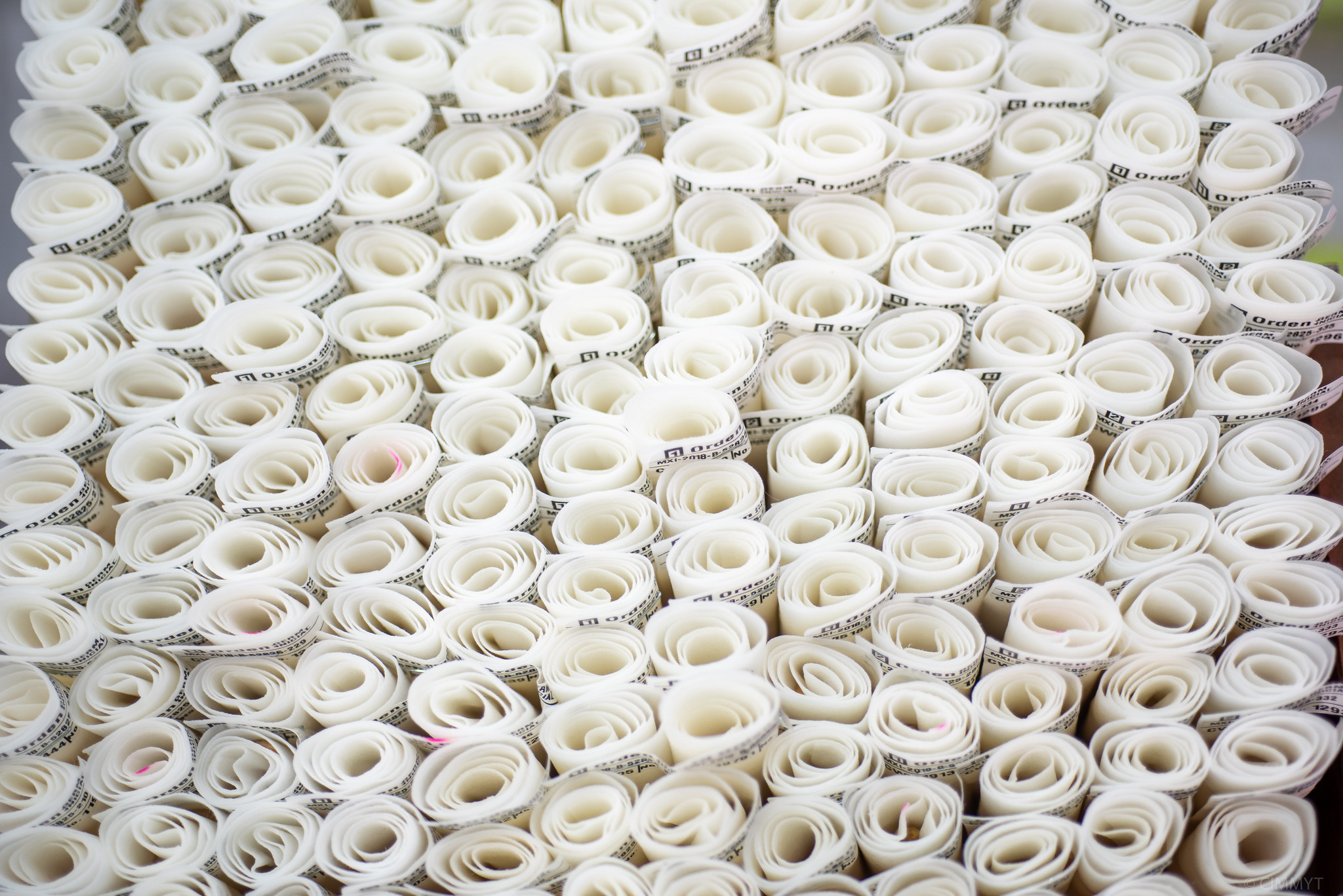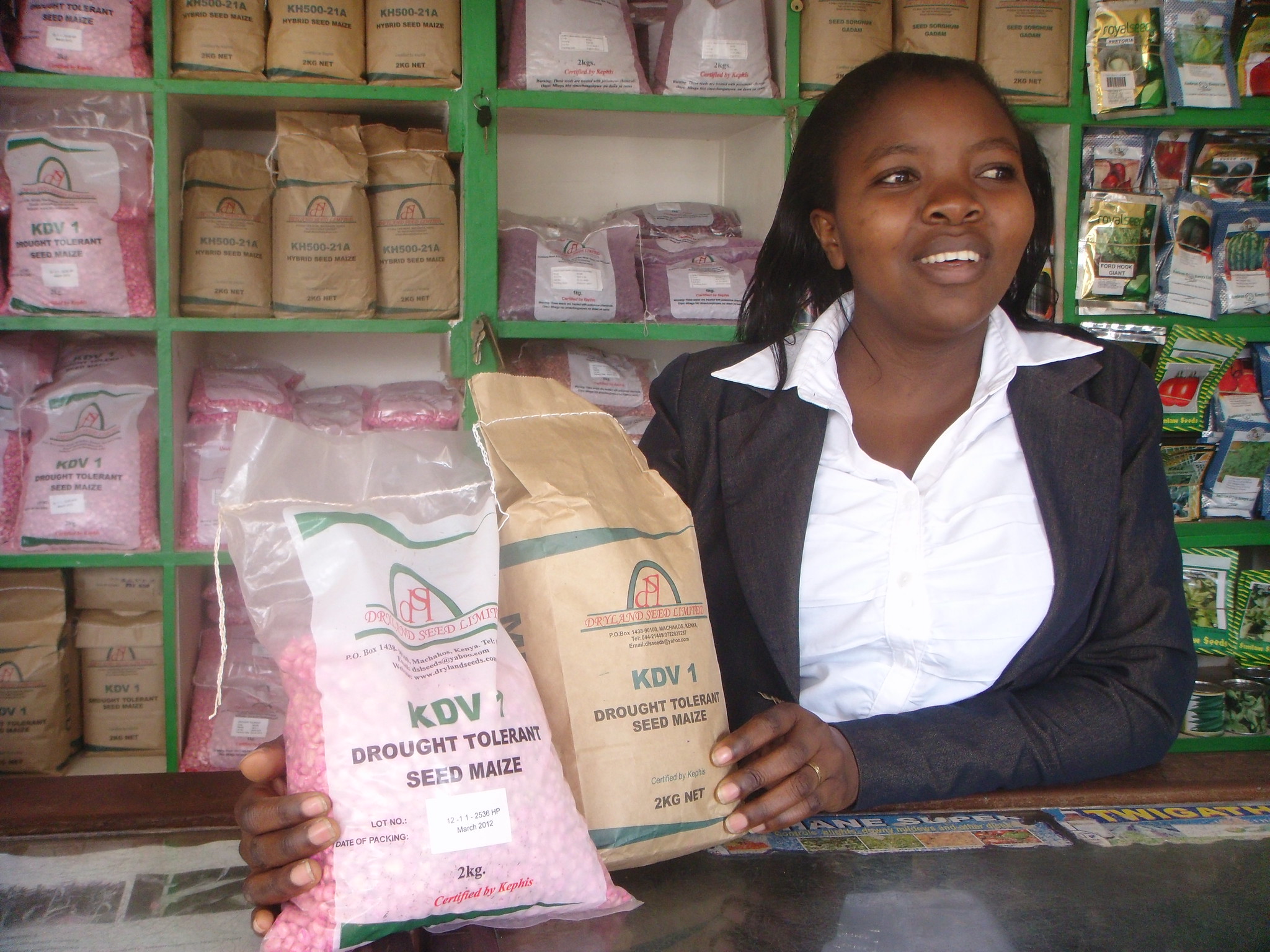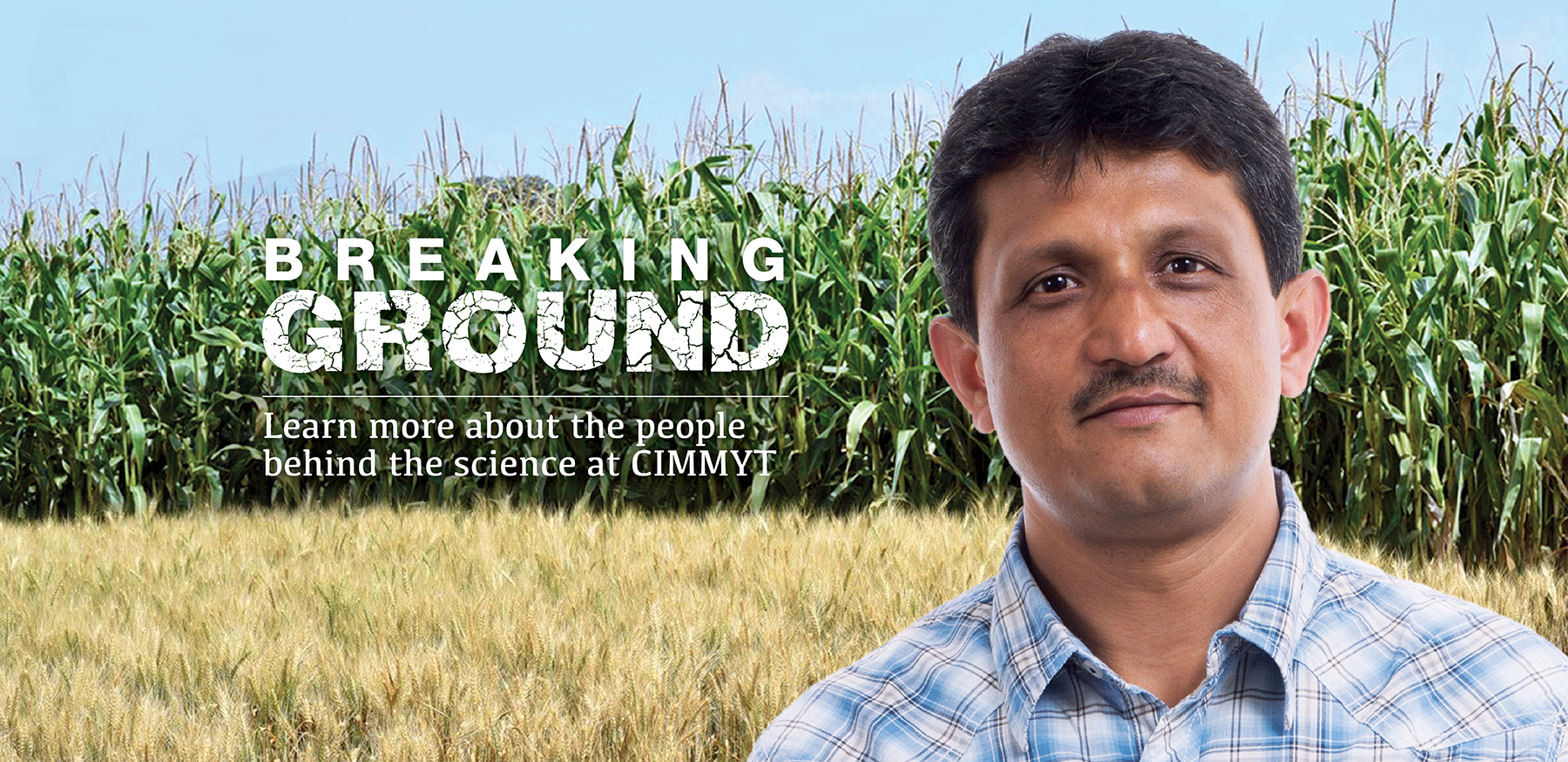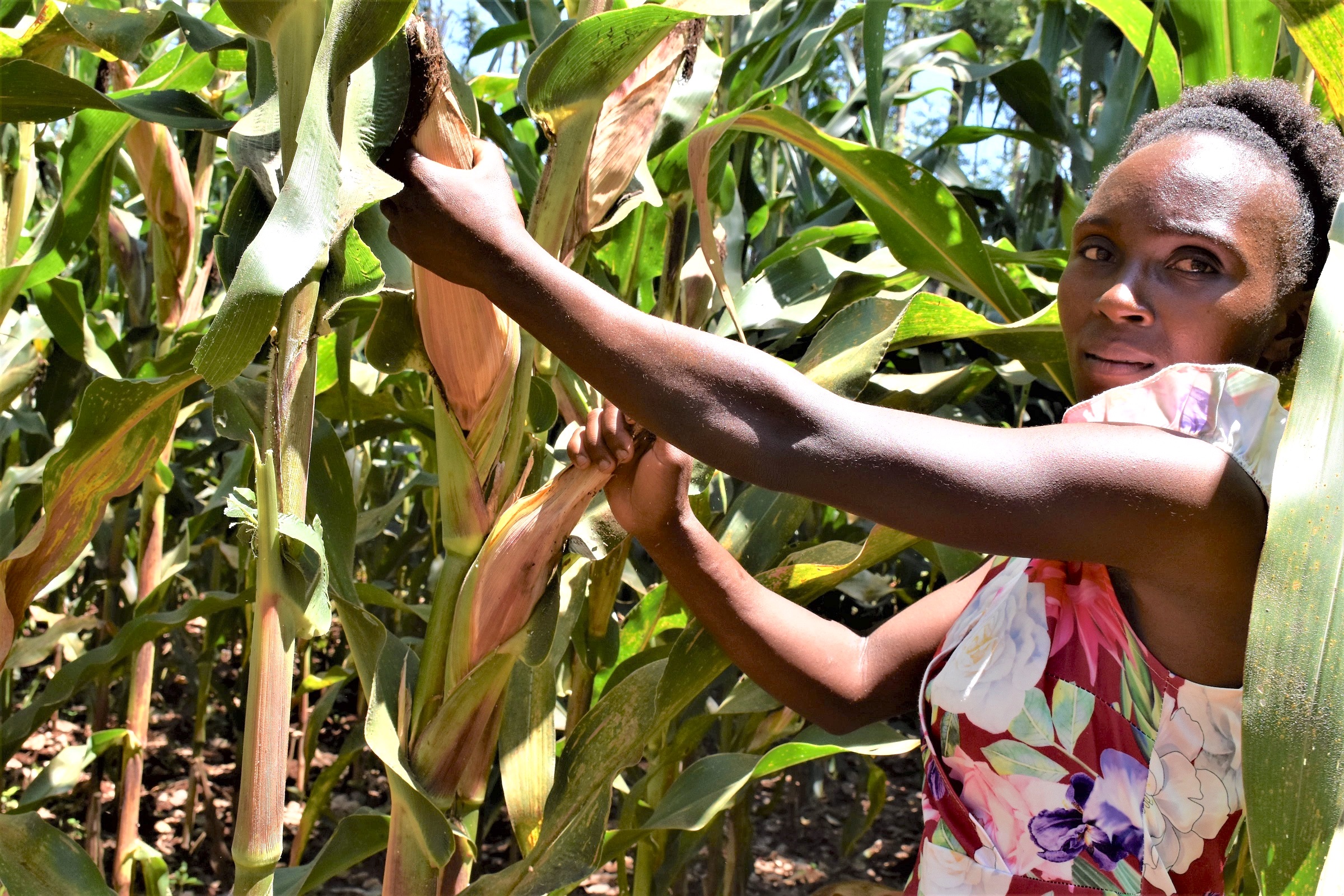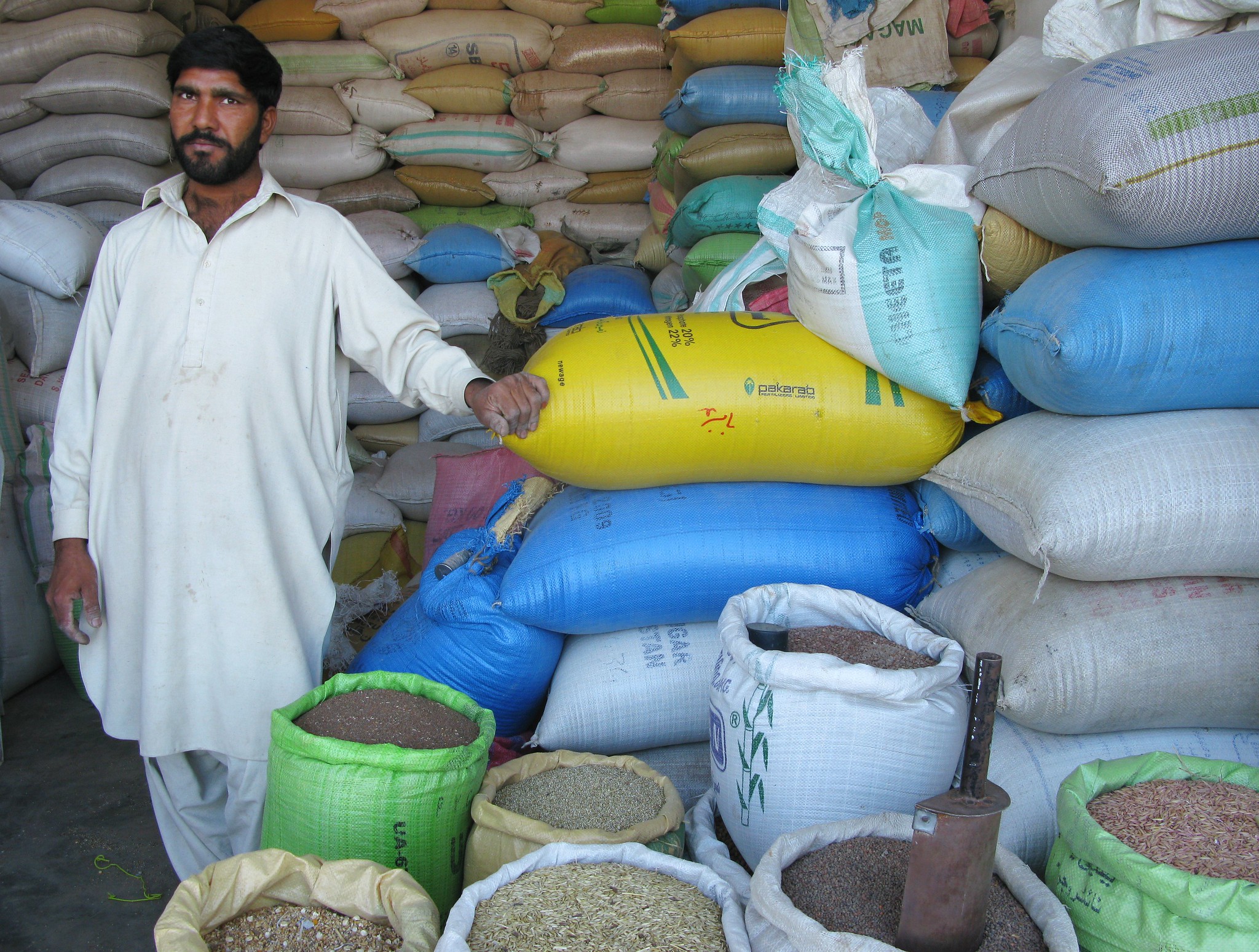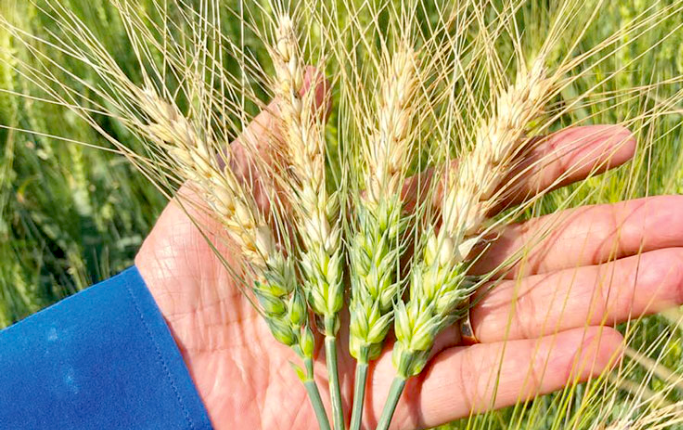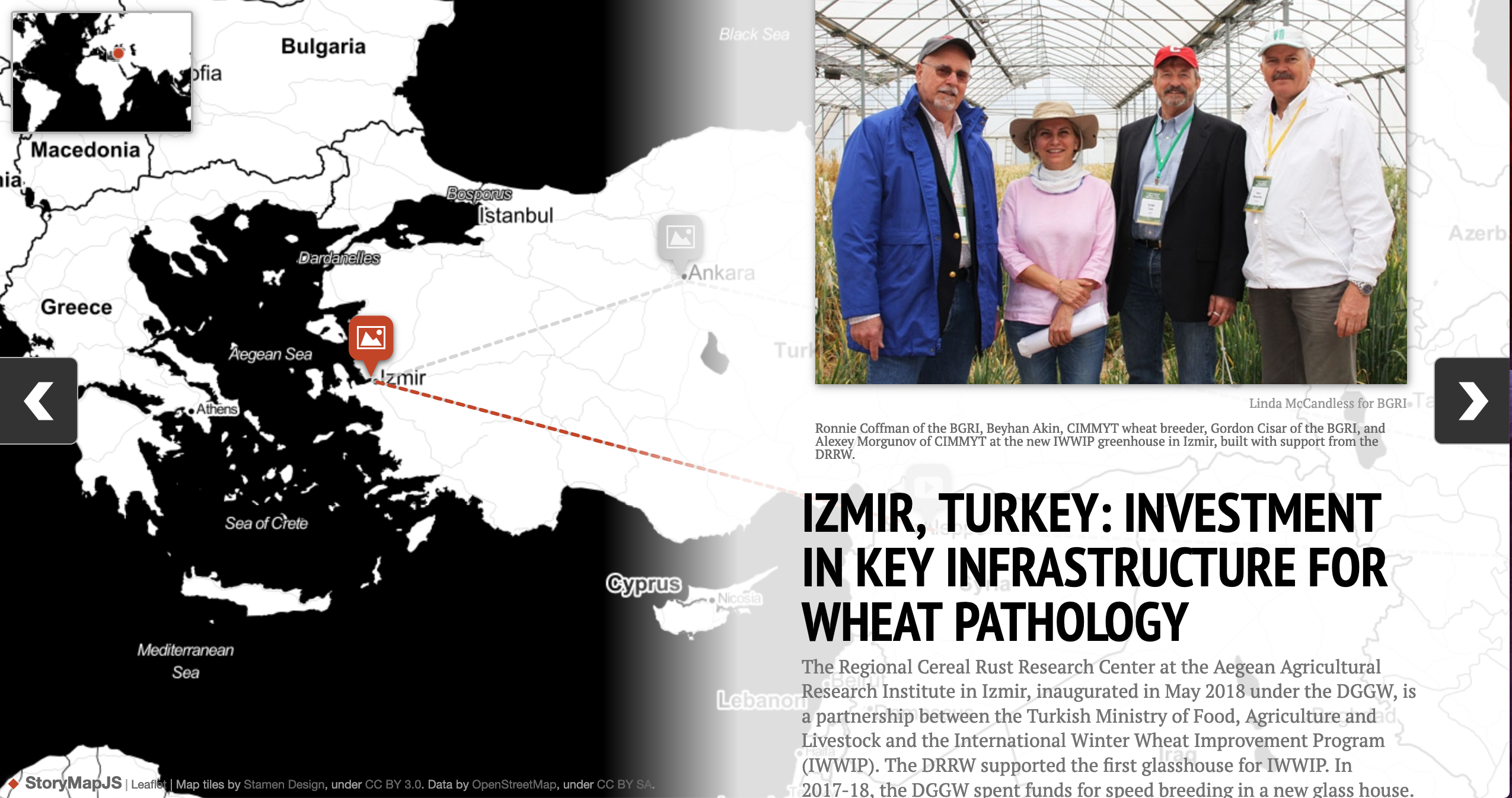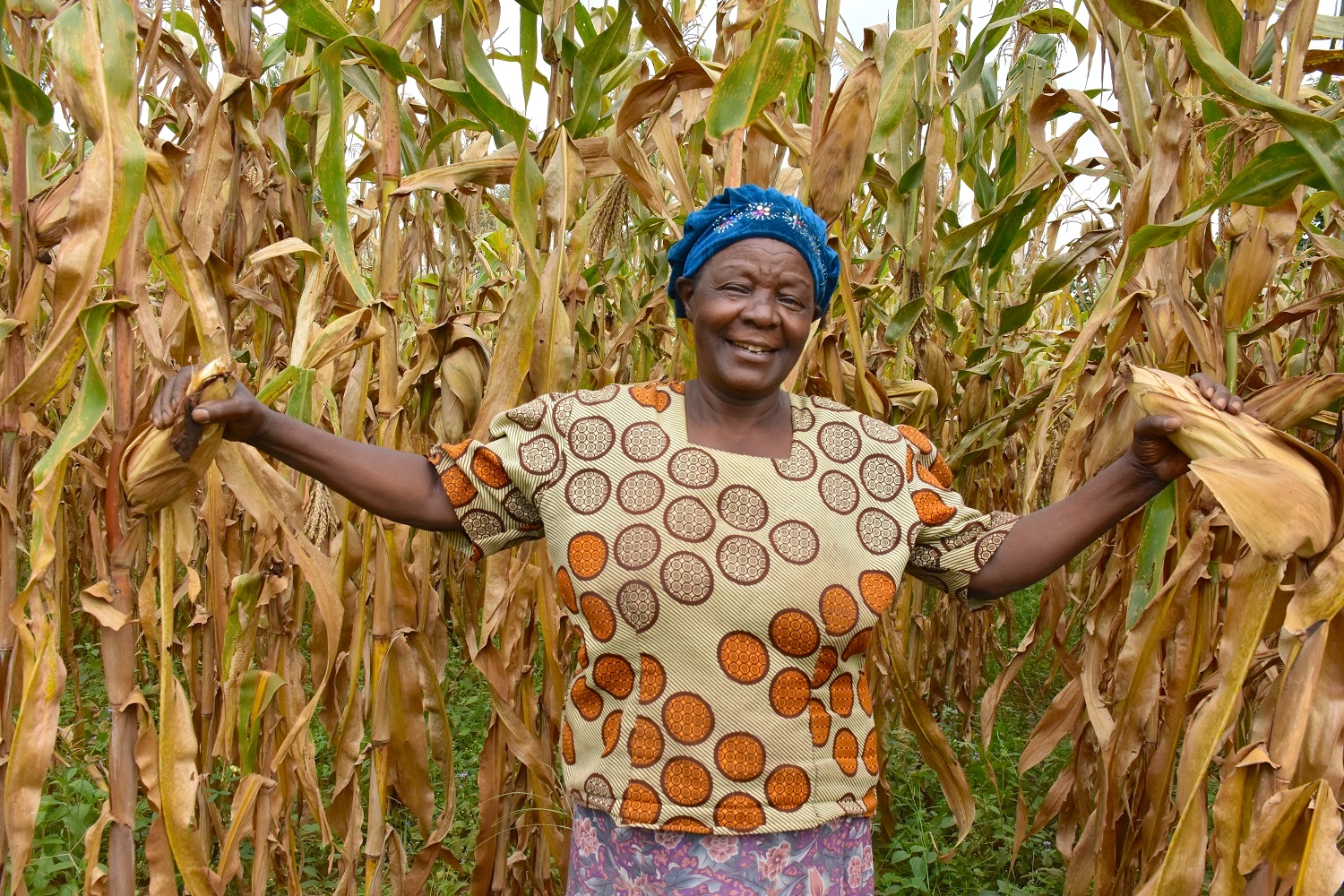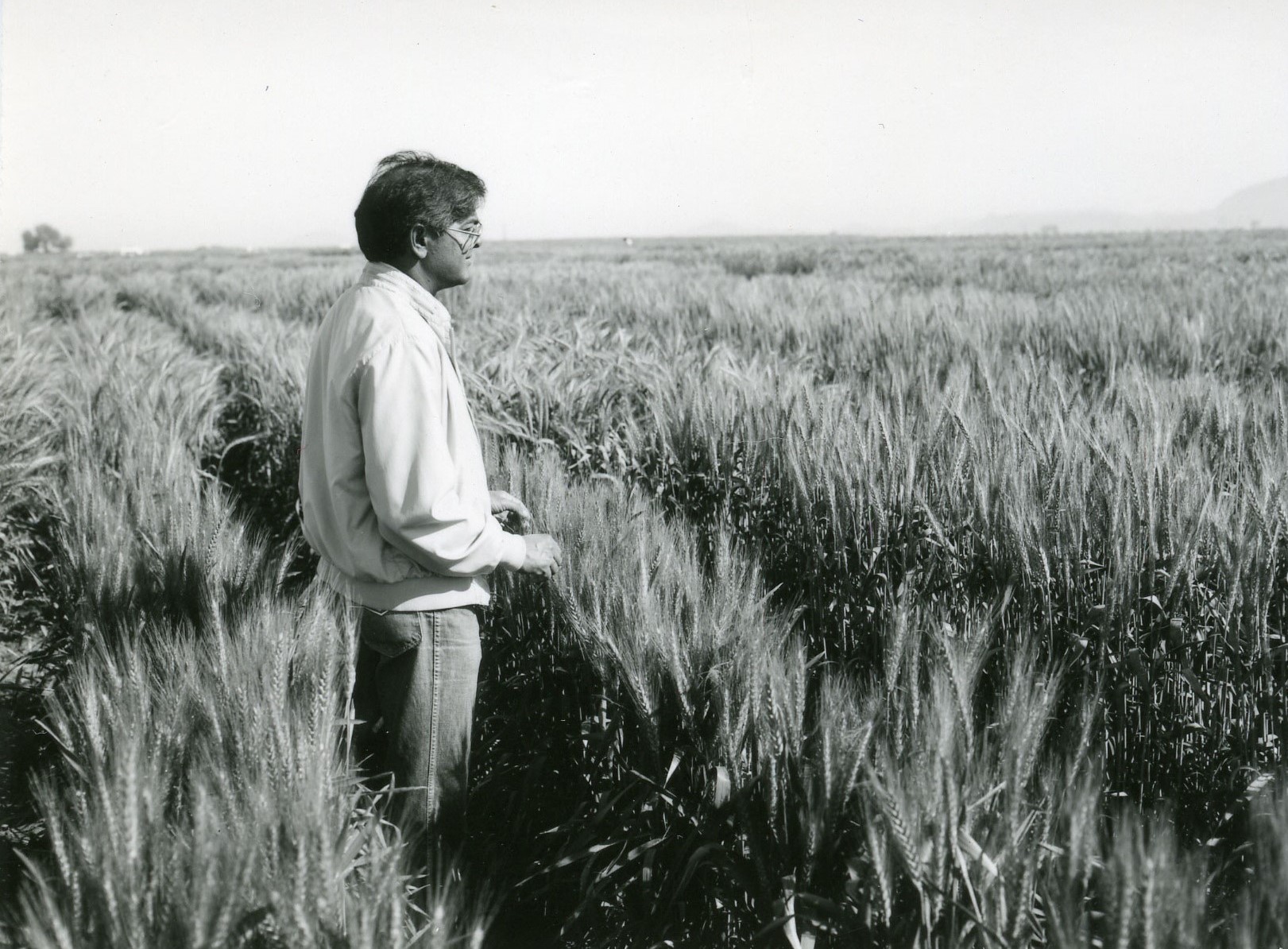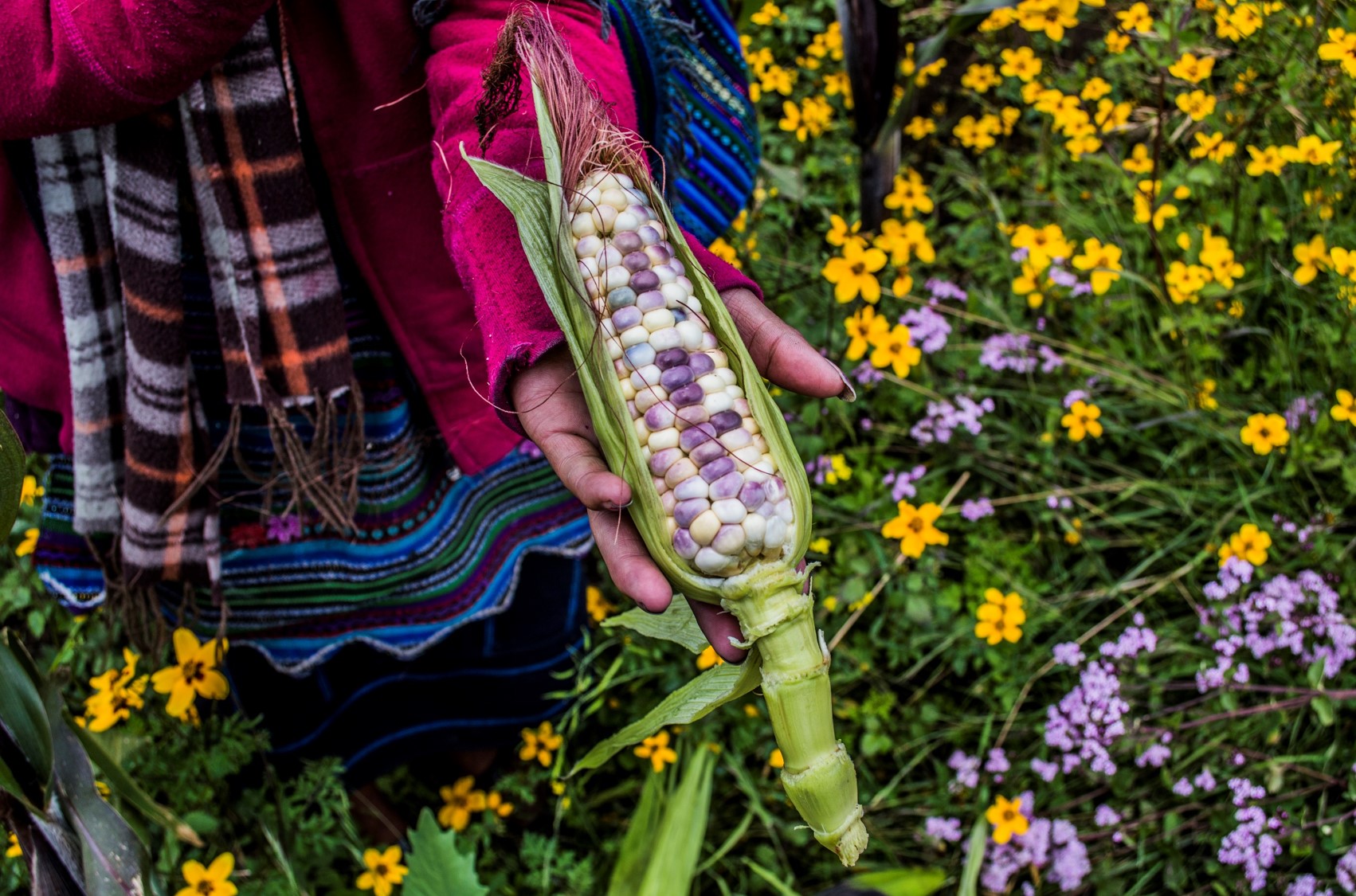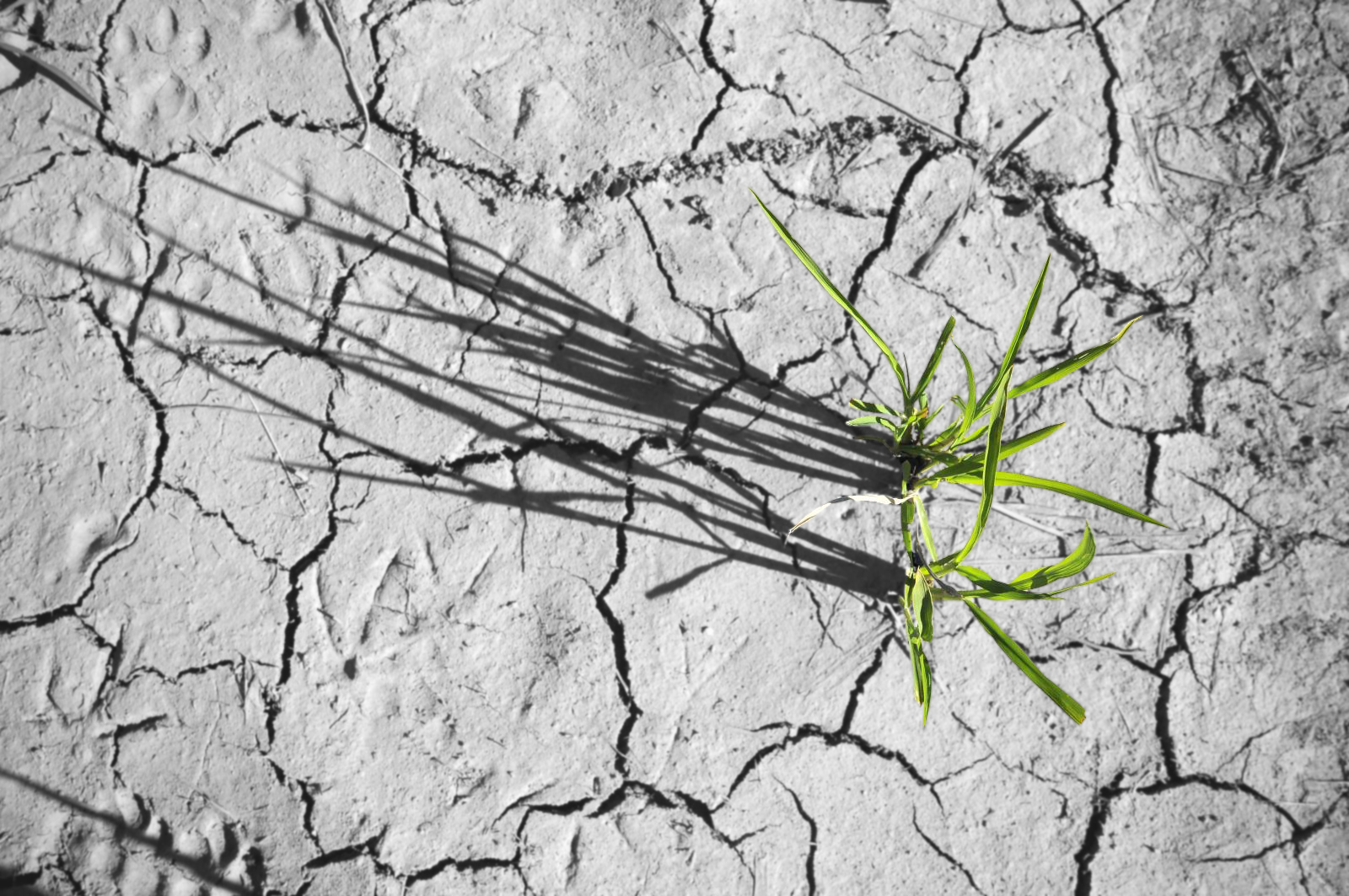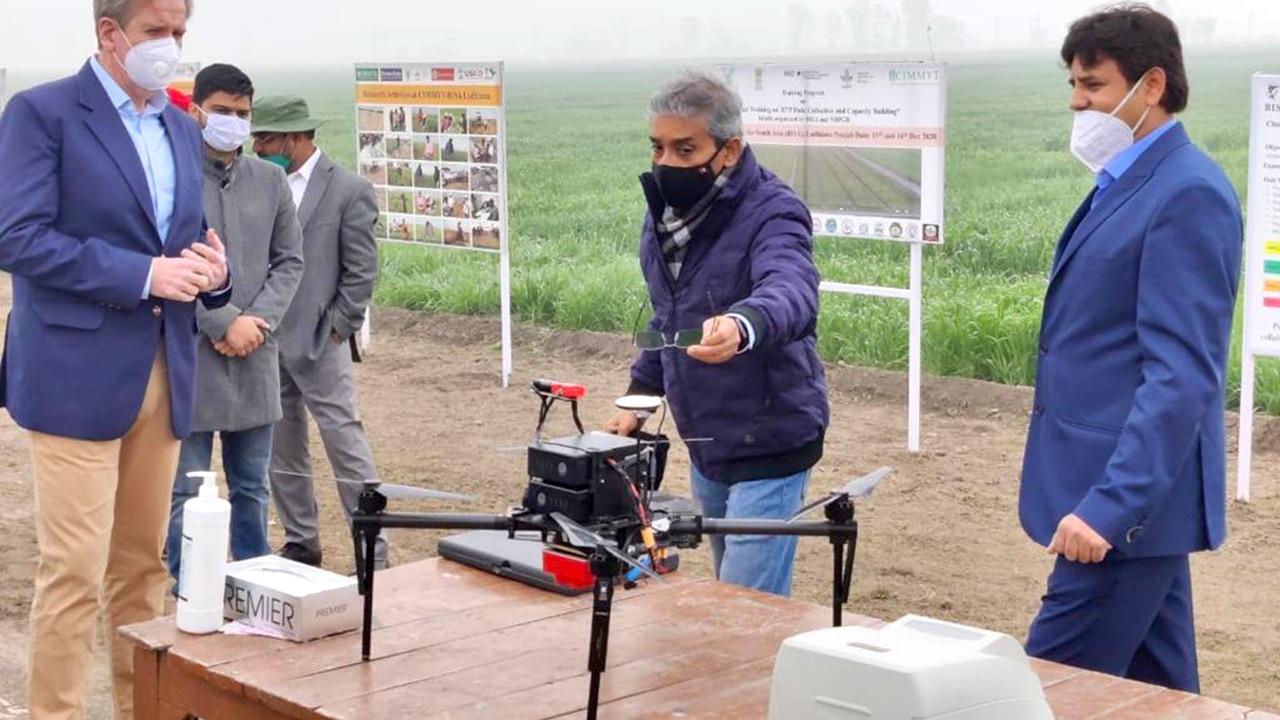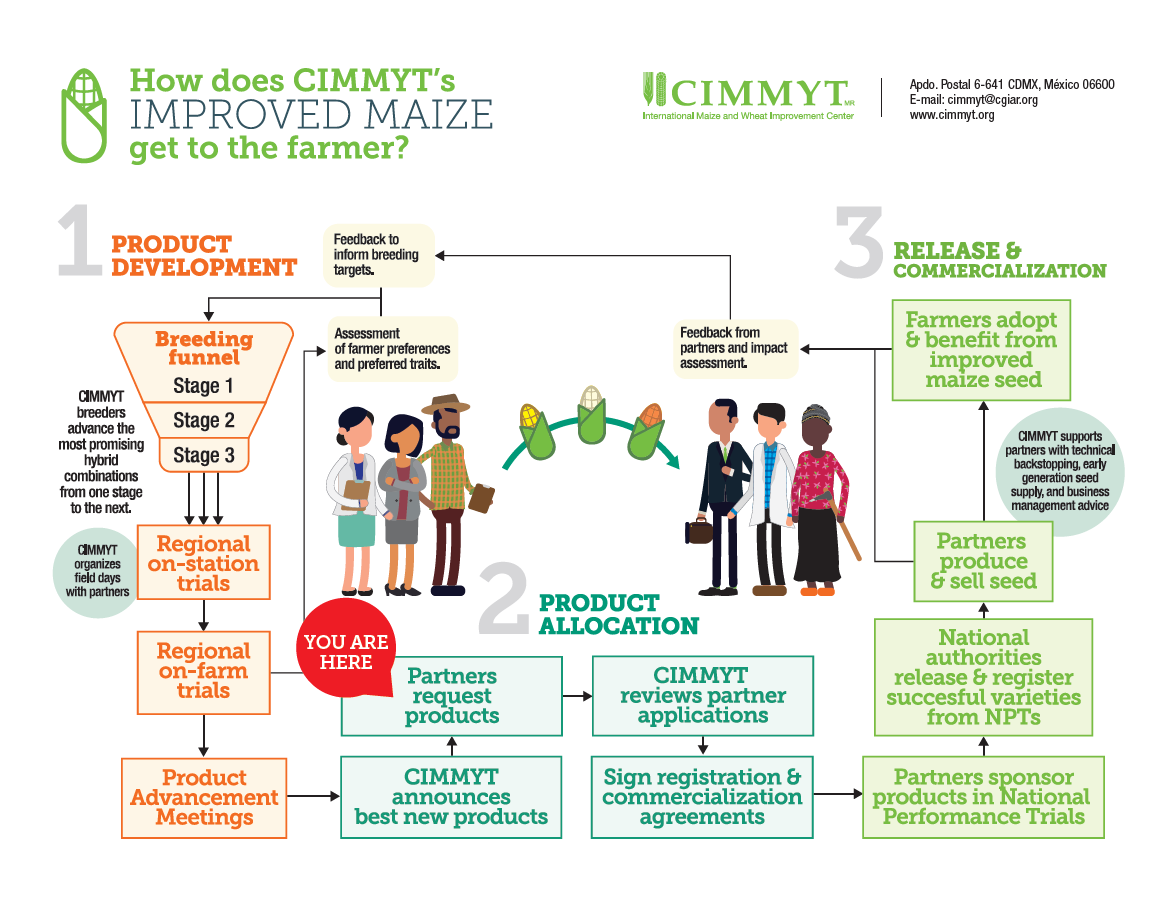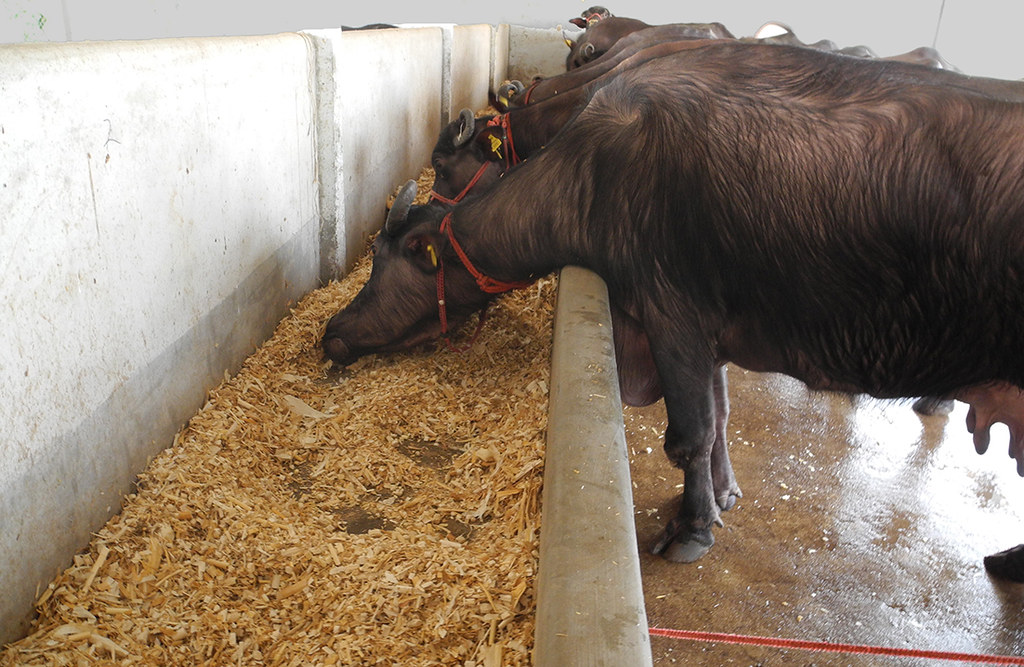Nutrition, health and food security
As staple foods, maize and wheat provide vital nutrients and health benefits, making up close to two-thirds of the world’s food energy intake, and contributing 55 to 70 percent of the total calories in the diets of people living in developing countries, according to the U.N. Food and Agriculture Organization. CIMMYT scientists tackle food insecurity through improved nutrient-rich, high-yielding varieties and sustainable agronomic practices, ensuring that those who most depend on agriculture have enough to make a living and feed their families. The U.N. projects that the global population will increase to more than 9 billion people by 2050, which means that the successes and failures of wheat and maize farmers will continue to have a crucial impact on food security. Findings by the Intergovernmental Panel on Climate Change, which show heat waves could occur more often and mean global surface temperatures could rise by up to 5 degrees Celsius throughout the century, indicate that increasing yield alone will be insufficient to meet future demand for food.
Achieving widespread food and nutritional security for the world’s poorest people is more complex than simply boosting production. Biofortification of maize and wheat helps increase the vitamins and minerals in these key crops. CIMMYT helps families grow and eat provitamin A enriched maize, zinc-enhanced maize and wheat varieties, and quality protein maize. CIMMYT also works on improving food health and safety, by reducing mycotoxin levels in the global food chain. Mycotoxins are produced by fungi that colonize in food crops, and cause health problems or even death in humans or animals. Worldwide, CIMMYT helps train food processors to reduce fungal contamination in maize, and promotes affordable technologies and training to detect mycotoxins and reduce exposure.
Consider the seed
 Environmental health and biodiversity
Environmental health and biodiversity
The second installment in the CGIAR International Year of Plant Health Webinar Series tackles the often-overlooked issue of germplasm health.
Out with the old, in with the new
 Innovations
Innovations
CIMMYT’s tried and tested approaches in varietal turnover and decades of experience in strengthening maize and wheat seed systems have a lot to contribute to CGIAR’s plan of building robust food systems by 2030.
Breaking Ground: Dyutiman Choudhary builds strong agribusinesses for sustainable economic growth
 Nutrition, health and food security
Nutrition, health and food security
CIMMYT market development specialist works to strengthen the seed and fertilizer market systems and value chains in Nepal.
Drought-tolerant maize project pioneers a winning strategy for a world facing climate change
 Climate adaptation and mitigation
Climate adaptation and mitigation
As partners come together as One CGIAR to enact a bold climate-centered strategy, projects like CIMMYT and IITA’s decades-long work on climate-smart maize can help show the way forward.
Five big steps toward wheat self-sufficiency in Pakistan
 Climate adaptation and mitigation
Climate adaptation and mitigation
Pakistan’s goal to achieve self-sufficiency in wheat production just became more attainable with the release of five new wheat varieties.
First complete cytological characterization of the 2NvS translocation
 Innovations
Innovations
Study validates importance and uncovers new benefits of crucial wheat genome segment.
The global network safeguarding the world’s wheat
 Climate adaptation and mitigation
Climate adaptation and mitigation
Interactive map illustrates impacts of BGRI’s 15 years of collaboration for disease- and climate-resilient wheat.
Q&A: A decade of improved and climate-smart maize through collaborative research and innovation
 Climate adaptation and mitigation
Climate adaptation and mitigation
A ten-year partnership led by CIMMYT and IITA tackles climate-induced risks in maize production, developing and deploying new climate-adaptive varieties benefiting over 8 million households in sub-Saharan Africa.
Remembering the life and legacy of Sanjaya Rajaram
 Nutrition, health and food security
Nutrition, health and food security
Former CIMMYT Wheat Program director and distinguished scientist made remarkable contributions to wheat improvement worldwide.
Classic milpa maize intercrop can help feed communities forgotten by development
 Nutrition, health and food security
Nutrition, health and food security
New study in the Western Highlands of Guatemala confirms relation between milpa intercropping diversity and nutritional capacity.
CGIAR webinar unleashes multidisciplinary approach to climate change and plant health
 Environmental health and biodiversity
Environmental health and biodiversity
Experts and over 900 participants tackled the agricultural, social, and environmental consequences of climate change-driven impacts on plant health.
Australia’s High Commissioner visits Borlaug Institute for South Asia to witness sustainable intensification of agriculture
 Innovations
Innovations
Barry O’Farrell highlighted strong collaboration of CIMMYT and BISA with Australian research institutes.
New CIMMYT maize hybrids available from Eastern Africa breeding program
 Innovations
Innovations
CIMMYT is offering a new set of improved maize hybrids to partners, to scale up production for farmers in these areas.
New publications: Scientists find genomic regions associated with better quality stover traits in maize for animal feed
 Nutrition, health and food security
Nutrition, health and food security
The results of this study will allow breeders to optimize dual purpose maize varieties to sustainably feed people and their livestock.
